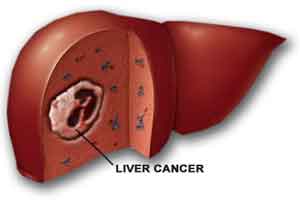- Home
- Editorial
- News
- Practice Guidelines
- Anesthesiology Guidelines
- Cancer Guidelines
- Cardiac Sciences Guidelines
- Critical Care Guidelines
- Dentistry Guidelines
- Dermatology Guidelines
- Diabetes and Endo Guidelines
- Diagnostics Guidelines
- ENT Guidelines
- Featured Practice Guidelines
- Gastroenterology Guidelines
- Geriatrics Guidelines
- Medicine Guidelines
- Nephrology Guidelines
- Neurosciences Guidelines
- Obs and Gynae Guidelines
- Ophthalmology Guidelines
- Orthopaedics Guidelines
- Paediatrics Guidelines
- Psychiatry Guidelines
- Pulmonology Guidelines
- Radiology Guidelines
- Surgery Guidelines
- Urology Guidelines
New study can determine whether someone has high risk of developing liver cancer

Washington : Exposure to fungal product, called aflatoxin, is believed to cause up to 80 percent of liver cancer cases in many parts of the world.
A new study by MIT researchers have developed a way to determine, by sequencing DNA of liver cells, whether those cells have been exposed to aflatoxin.
This profile of mutations could be used to predict whether someone has a high risk of developing liver cancer, potentially many years before tumours actually appear.
"What we're doing is creating a fingerprint," said John Essigmann, the William R. and Betsy P. Leitch Professor of Biological Engineering and Chemistry at MIT. "It's really a measure of prior exposure to something that causes cancer."
This approach could also be used to generate profiles for other common carcinogens, said Essigmann, who is the senior author of a paper describing the findings in the Proceedings of the National Academy of Sciences.

Disclaimer: This site is primarily intended for healthcare professionals. Any content/information on this website does not replace the advice of medical and/or health professionals and should not be construed as medical/diagnostic advice/endorsement or prescription. Use of this site is subject to our terms of use, privacy policy, advertisement policy. © 2020 Minerva Medical Treatment Pvt Ltd